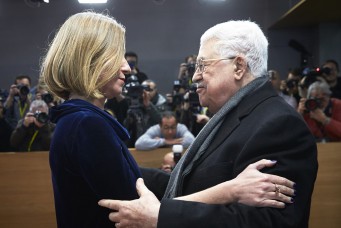Keeping Hope Alive
At present, what is of major concern to the Egyptian citizen is a need to realize the January 25 demands for better quality of life, freedom, human dignity and social justice.
For so long, Egyptians were complacent and passive. They were described by many historians and scholars, such as Nazih Ayubi, of the University of Exeter, and Gamal Hamdan, author of The Personality of Egypt, as a tolerant, risk-averse people who loved settling down in their agrarian communities beside the Nile.
Egyptians, as the world knows, are no longer settling down. In 2011, they rose up in the January 25 Revolution to end the thirty-year rule of President Hosni Mubarak. Another wave of the Revolution erupted last June 30, due to the failed governing practices and the alienating policies of Mubarak’s successor, Mohammed Morsi. Millions took to the streets once again, declaring their opposition to Muslim Brotherhood rule and calling for expedited presidential elections.
After just a few days, the armed forces intervened and declared its support for the people’s demands. For the second time in less than three years, an Egyptian ruler was ousted and placed in prison. The military called on the head of the Supreme Constitutional Court to step in as interim president. Overthrowing a government that was headed by the first democratically elected president, and the configuration of another, did not occur smoothly. Strong resistance by Muslim Brotherhood supporters and by proponents of political Islam resulted in demonstrations and strikes all over Egypt. The turmoil reached a tragic peak when security forces cleared demonstrators from the Rabaa El-Adawiya and Nahda square protests in Cairo, resulting in hundreds of deaths and injuries.
These events led to a long debate about whether what happened was a new Revolution, a second wave of the Revolution, or a military coup d’etat. Different political scientists, historians, international experts and even foreign governments took sides with either one view or the other. Even within Egyptian families, brothers and sisters, cousins and siblings stopped speaking to one another, as proponents of opposing views stuck to their side of the puzzling struggle. Only a few, it seems, managed to come to an understanding that it is not ‘either/or,’ and that perhaps we need to add new terms and concepts to our political science dictionaries.
When there are massive citizen movements and demands, which are then supported by the armed forces and lead in turn to a civilian government, it may be a new phenomenon. Only time will tell how the story will unfold, and only history—depending on who gets to write the history books—will perhaps reveal the true intentions of the different parties involved.
At present, what is of major concern to the Egyptian citizen is a need to realize the January 25 demands for better quality of life, freedom, human dignity and social justice. People on the street, who may not be politicized, are worried about the rising inflation rate, the difficulty of finding a job, the deteriorating health and educational services, and the general difficulty of making ends meet.
There are two main prerequisites for achieving the demands of the Revolution: first, security on the streets, and second, the ability to listen to one another, accept differences in opinions and reach a compromise for the common good. The two prerequisites are interrelated and overlapping. If we cannot have dialogue, if we cannot talk to one another and we remain polarized, then violence and lack of security will predominate, and vice versa. With more violence, people become even more polarized, and the security situation deteriorates with negative ramifications on the economic situation and citizens’ quality of life.
This is not a preacher’s call for peace and harmony, but rather a note that we need to deal with the root causes of our problems and come up with sustainable solutions for the benefit of all. Undoubtedly, this will require a reconciliation process, perhaps one that is unique to Egypt and its circumstances. But there are models that are worth examining.
After its long history of apartheid and racial injustice, South Africa established a reconciliation process that worked on integrating all society members, black and white, oppressors and oppressed. The process incorporated many elements and was by no means assured of success. A key factor was the high quality of leadership exhibited by principal figures, notably Nelson Mandela, leader of the African National Congress, and F.W. De Klerk, the white president who opened the door to a democratic transition by releasing Mandela from prison. Other important elements were the inclusion of all major parties in negotiations for a new constitution, and the commitment of these groups to the rule of law during the political transition. The Truth and Reconciliation Commission established in 1995 after the abolition of apartheid rule required the transgressors who were proven guilty, and who confessed to their crimes and transgressions, to request amnesty in a public hearing.
No system is perfect, but if the South Africans have succeeded to a large extent in overcoming such a major hurdle in their transition to democracy, why can’t Egyptians? It does not have to be a replica of other countries’ experiences, but we can come up with our own mechanism for airing grievances, ensuring transparency and implementing transitional justice. The goal is a greater degree of democracy and the protection of the society’s cohesion. We remain hopeful for a better future.
Laila El Baradei is the acting dean of the School of Global Affairs and Public Policy at the American University in Cairo.
Subscribe to Our Newsletter





